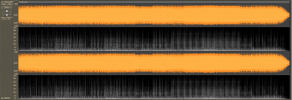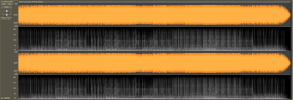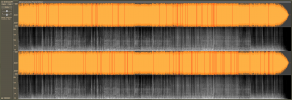The problem with the LP versus CD debates is that they have been parasitized by the propaganda of audiophile magazines since the end of the 1980s.
They then, after having accompanied the launch of the CD supported by advertising campaigns from the majors and large companies of audio, taking up the cause of the small audiophile brands and their networks of resellers who were their biggest advertising advertisers, after the cessation of the advertising campaigns of the big ones...
However, these small brands which did not have the technological means to produce CD players continued to sell and manufacture LP decks... The discourse which developed was then one of those which poisoned high fidelity for the sake of transform into audiophilia... Digital has been condemned as being anti-musical, producing a choppy sound while the LP was analog and therefore musical...
Here's why discussions around LP versus digital have been doomed to failure for over 30 years.
The reality is quite simple: the CD - and even more so the 24-bit digital one - qualitatively crushes the LP for at least two reasons: its intrinsic performance and the fact that its manufacture has no influence on the quality of the CD... while the pressing quality of the LPs has a considerable influence on the sound result: I am talking here about the same recording...
I gave away for a long time my Glenn Gould, Vladimir Horowitz, Leonard Bernstein CBS imported from the USA during the sixties which I replaced with their European versions pressed in the Netherlands, Austria or France of incomparably superior quality in the seventies and eighties... Today a CBS-Sony or RCA CD is of identical quality purchased on both sides of the Atlantic...
But there are of course bad editions of the same recording on CD and LP, but that's another problem.
Ah: I have three LP decks and 78 rpms and still around 1000 LPs and a hundred 78 rpms... But I am a fan of classical music and composers have very bad idea when the last minutes of their symphonies or opéra are played fortissimos by one hundred of musicians : LP is horrible with terrible distorsions... and a small bandwidth... due to the very low speed of movement of the furrow under the point when we are near the end of the face...
They then, after having accompanied the launch of the CD supported by advertising campaigns from the majors and large companies of audio, taking up the cause of the small audiophile brands and their networks of resellers who were their biggest advertising advertisers, after the cessation of the advertising campaigns of the big ones...
However, these small brands which did not have the technological means to produce CD players continued to sell and manufacture LP decks... The discourse which developed was then one of those which poisoned high fidelity for the sake of transform into audiophilia... Digital has been condemned as being anti-musical, producing a choppy sound while the LP was analog and therefore musical...
Here's why discussions around LP versus digital have been doomed to failure for over 30 years.
The reality is quite simple: the CD - and even more so the 24-bit digital one - qualitatively crushes the LP for at least two reasons: its intrinsic performance and the fact that its manufacture has no influence on the quality of the CD... while the pressing quality of the LPs has a considerable influence on the sound result: I am talking here about the same recording...
I gave away for a long time my Glenn Gould, Vladimir Horowitz, Leonard Bernstein CBS imported from the USA during the sixties which I replaced with their European versions pressed in the Netherlands, Austria or France of incomparably superior quality in the seventies and eighties... Today a CBS-Sony or RCA CD is of identical quality purchased on both sides of the Atlantic...
But there are of course bad editions of the same recording on CD and LP, but that's another problem.
Ah: I have three LP decks and 78 rpms and still around 1000 LPs and a hundred 78 rpms... But I am a fan of classical music and composers have very bad idea when the last minutes of their symphonies or opéra are played fortissimos by one hundred of musicians : LP is horrible with terrible distorsions... and a small bandwidth... due to the very low speed of movement of the furrow under the point when we are near the end of the face...




